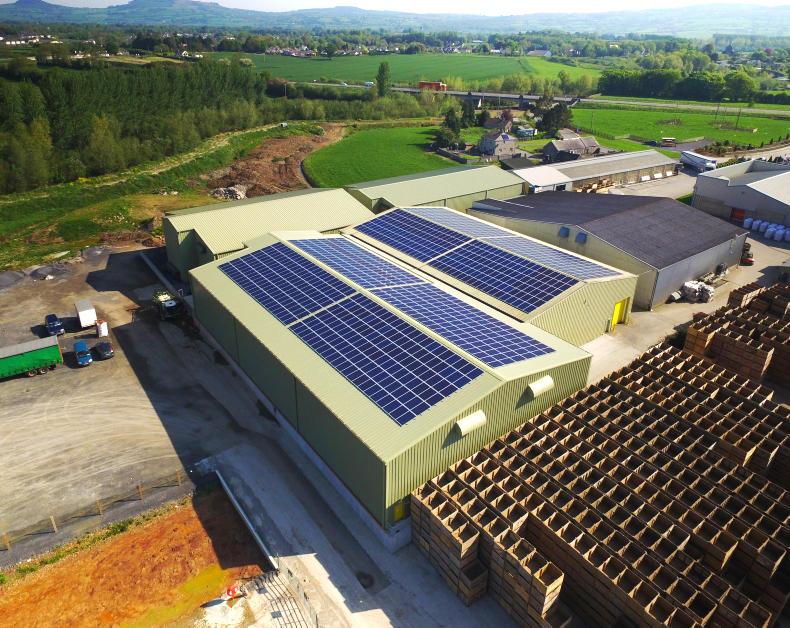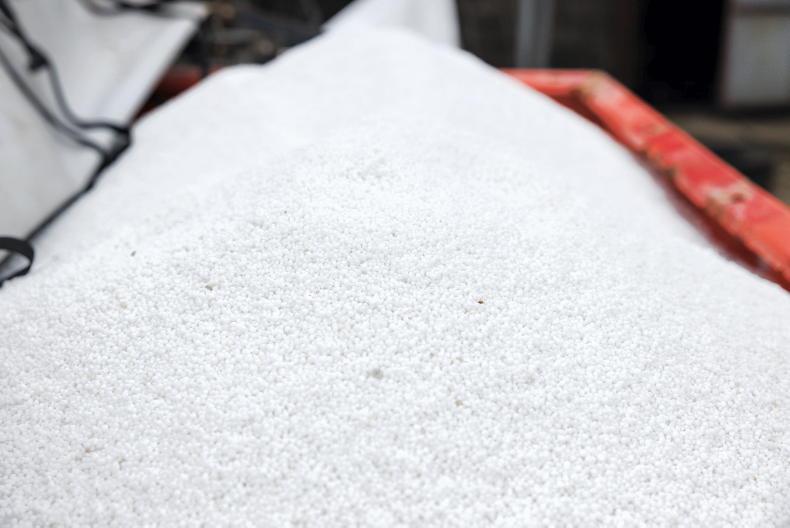Renewable industry bodies believe they can produce 70% of Ireland’s electricity by 2030, with a leading European expert calling for widespread farmer involvement in the process.
Ireland currently produces 30% of its electricity from renewables, ahead of a 40% EU target for 2020. Such targets are set to increase for the next decade. The organisations representing the wind, solar and bioenergy sectors have commissioned a study from the UK consultancy firm Baringa showing that the 70% all-Ireland objective could be achieved at no extra costs to consumers, provided Government policy shifts to supporting up-front investments in renewables in exchange for savings on fossil fuels later. Baringa says this would cut greenhouse gas emissions from power generation twice as fast as the common practice of replacing dirtier coal and peat plants with natural gas, another form of fossil fuel. The study doesn’t include the option for farmers to produce renewable gas used in gas power plants.
The main opportunity for farmers lies in the explosion of solar power in the Republic, where it is currently virtually non-existent in the absence of any current or past subsidies. A new Renewable Electricity Support Scheme is due to open next year. The 2,450MW increase in solar capacity projected by Baringa by 2030 would represent around 13,000ac of solar farms, many of which will be built on farmers’ land.
The European Commission’s former head of renewable energy Marie Donnelly said “farmers have a huge role to play” in this transition – not only by providing land for large projects, but also in small-scale power generation. “They have outhouses and buildings, so they have roof space for photovoltaic panels,” she told the Irish Farmers Journal, adding that they should be allowed to sell excess power to the grid. In Germany, farmers own half of all solar panels. This can be combined with smart metering incentivising the use of power when more renewable electricity is available in the grid. Such a combination would “engage the minds and the hearts of the people of Ireland on energy,” she said.
Listen to "Farmers can contribute to 70% renewable power" on Spreaker.
New government supports for rooftop solar panels are currently reserved for domestic buildings, but there are plans to extend this to farms.
Further engagement with farmers would be necessary to meet some of Baringa’s assumptions. The study relies on better interconnection with other jurisdictions including the construction of the North-South Interconnector across farmland. The study also forecasts the near doubling of wind capacity – also a potential source of conflict with neighbouring farmers. However Irish Wind Energy Association chief executive David Connolly said his industry was committed to improving relations with rural communities through shared ownership of wind farms and increasing benefit contributions for comunities near wind farms to €250m by 2030.
Read more
Incentives needed for climate-friendly spreading – Teagasc
Global sustainability summit for beef
Renewable industry bodies believe they can produce 70% of Ireland’s electricity by 2030, with a leading European expert calling for widespread farmer involvement in the process.
Ireland currently produces 30% of its electricity from renewables, ahead of a 40% EU target for 2020. Such targets are set to increase for the next decade. The organisations representing the wind, solar and bioenergy sectors have commissioned a study from the UK consultancy firm Baringa showing that the 70% all-Ireland objective could be achieved at no extra costs to consumers, provided Government policy shifts to supporting up-front investments in renewables in exchange for savings on fossil fuels later. Baringa says this would cut greenhouse gas emissions from power generation twice as fast as the common practice of replacing dirtier coal and peat plants with natural gas, another form of fossil fuel. The study doesn’t include the option for farmers to produce renewable gas used in gas power plants.
The main opportunity for farmers lies in the explosion of solar power in the Republic, where it is currently virtually non-existent in the absence of any current or past subsidies. A new Renewable Electricity Support Scheme is due to open next year. The 2,450MW increase in solar capacity projected by Baringa by 2030 would represent around 13,000ac of solar farms, many of which will be built on farmers’ land.
The European Commission’s former head of renewable energy Marie Donnelly said “farmers have a huge role to play” in this transition – not only by providing land for large projects, but also in small-scale power generation. “They have outhouses and buildings, so they have roof space for photovoltaic panels,” she told the Irish Farmers Journal, adding that they should be allowed to sell excess power to the grid. In Germany, farmers own half of all solar panels. This can be combined with smart metering incentivising the use of power when more renewable electricity is available in the grid. Such a combination would “engage the minds and the hearts of the people of Ireland on energy,” she said.
Listen to "Farmers can contribute to 70% renewable power" on Spreaker.
New government supports for rooftop solar panels are currently reserved for domestic buildings, but there are plans to extend this to farms.
Further engagement with farmers would be necessary to meet some of Baringa’s assumptions. The study relies on better interconnection with other jurisdictions including the construction of the North-South Interconnector across farmland. The study also forecasts the near doubling of wind capacity – also a potential source of conflict with neighbouring farmers. However Irish Wind Energy Association chief executive David Connolly said his industry was committed to improving relations with rural communities through shared ownership of wind farms and increasing benefit contributions for comunities near wind farms to €250m by 2030.
Read more
Incentives needed for climate-friendly spreading – Teagasc
Global sustainability summit for beef










SHARING OPTIONS